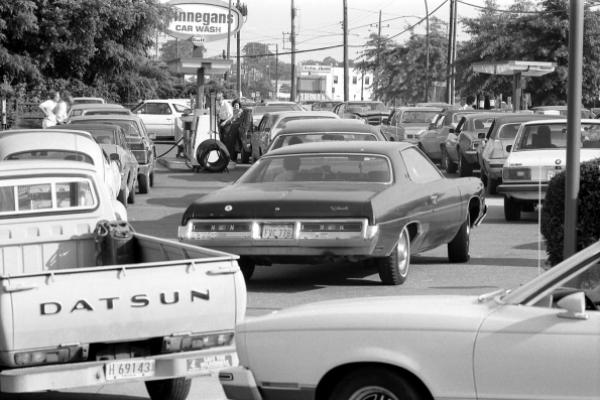
Skyrocketing oil and gasoline costs have some People calling for a return to the pricing controls of the Nineteen Seventies.
Joseph Brusuelas, principal and chief economist for RSM US LLP, mentioned value controls in a brand new weblog publish this week and outlined precisely why they’re a nasty thought.
What Are Value Controls? Value controls are authorities actions taken to control free market costs. Whereas many individuals might consider value controls as a inflexible coverage resembling rent-controlled housing with a tough cap on hire, Brusuelas mentioned value management insurance policies really fall on a spectrum starting from delicate to extreme.
Associated Hyperlink: Why Inflation Throughout Occasions Of Battle Is Typical And May Get Even Worse
Brusuelas mentioned the delicate finish of the value management spectrum could be the actions taken by the Federal Reserve, together with rate of interest modifications and quantitative easing and tightening.
The extreme finish of the value management spectrum consists of the actions taken by the U.S. Workplace of Value Administration throughout World Battle II. The OPA set costs and imposed rationing for a variety of merchandise to assist the conflict effort, together with gasoline, rubber, sugar and low. One other instance of utmost value controls got here within the Nineteen Seventies when People in sure areas have been solely allowed to buy gasoline on sure days of the week. President Richard Nixon enacted wage controls in Nineteen Seventies to assist fight inflation.
Failed Experiment? Brusuelas mentioned the value controls of the Nineteen Seventies “spectacularly failed.”
“These value controls didn’t work — the value of gasoline continued to rise, and value controls and stringent guidelines for purchases resulted in inefficiencies,” he mentioned.
The United States Gasoline Fund LP UGA is up a whopping 86.6% within the final 12 months.
Whereas it could seem to be gasoline is a necessity that customers cannot do with out, Brusuelas mentioned historical past demonstrates customers and the market have extra flexibility than it could appear. Along with driving fewer miles, the Nineteen Seventies oil shock caused a brand new wave of compact automobiles and energy-efficient autos. At present’s atmosphere may improve demand for electrical autos or different clear vitality transportation companies.
Brusuelas mentioned value controls definitely serve a goal throughout wartime, when a nation’s survival might rely on whether or not or not its navy has entry to the assets it wants. However larger costs alone aren’t sufficient to justify value controls.
“Costs in an open financial system are probably the most environment friendly mechanism for figuring out shopper selection,” Brusuelas mentioned.
The atmosphere in 2022 is not a results of a failed free market, the economist mentioned. It’s merely the fallout from a local weather of geopolitical uncertainty and the shortcoming for the world to maneuver past a single main vitality supply.
“Reasonably than trying to control the availability or demand for oil, governments may discover it extra environment friendly to advance the transition from fossil fuels and to subsidize those that can’t afford to shortly make that transition,” Brusuelas concluded.
Benzinga’s Take: In March, U.S. President Joe Biden joined 30 different international locations in committing to releasing 60 million barrels of oil from strategic oil reserves, which in itself was a type of value controls. If vitality costs stay elevated, the free market will ultimately modify in a roundabout way, whether or not that adjustment is drivers shopping for much less gasoline, the transportation business offering extra inexperienced merchandise and options or an financial recession that drives down industrial oil demand.
A line of automobiles ready for gas in June 1979. Photograph by Warren Ok. Leffler through The Library of Congress.